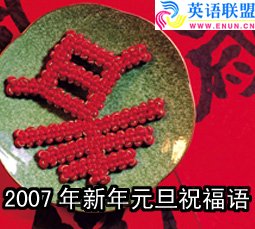F)同义句转换
同义句转换是初中学生应当掌握的基本技能之一,也是各类考试经常考查的题型之一。同义句转换分为以下几种:
1)简单句之间的转换
简单句之间的转换通常有:用同义词(词组)、反义词(词组)替换相关的词语,或用意思相同的句型替换。如:
I got a letter from her.→I heard from her.
They started a moment ago.→They started just now.
He didn't see anybody there.→He saw nobody there.
She spent two hours(in)finishig the work.→It took her two hours to finish the work.
A pencil is cheaper than a pen.→A pencil isn't so expensive as a pen.
2)复合句之间的转换
复合句之间的转换通常用不同的词改写或改变句子结构。如:
I don't think the question is difficult.→I think the question is easy.
A pencil is cheaper than a pen.→A pencil isn't so expensive as a pen.
3)复合句转换成简单句
复合句转换成简单句多用动词不定式、介词短语、名词短语替换从句或用相同的句型替换。如:
Can you tell me when we'll start?→Can you tell me when to start?
I hope I'll meet you again.→I hope to meet you again.
He walked so fast that he could catch up with us.→He walked fast enough to catch up with us.
I finished the work because they helped me.→With their help,I finished the work.
4)并列句变复合句
并列句变复合句一般运用并列连词、不定式等。如:
Mike went to swim and Bill went to swim,too.→Both Mike and Bill went to swim.
I'm not good at playing football and he isn't good at it,either.→Neither he nor I am good at playing football.
The basket is big.It can hold all the oranges.→The basket is big enough to hold all the oranges.
Kate got up early.She hoped to take the train.→Kate got up early to take the train.
5)两个简单句变一个复合句
两个简单句变一个复合句一般用一些相关的关连词引导两个简单句。如:
He was ill,so he didn't come to school.→He didnt come to school because he was ill.
The boy climbed up a tree.He wanted to catch a bird.→The boy climbed up a tree so that he could catch a bird.
练习:
在每个空白处填写一个适当的单词,使两句句义基本相符。
1.There isn't any rice in the shop.
There rice in the shop.
2.Allan jumps higher than his classmates.
Allan jumps in his .
3.Miss Zhao is our English teacher.
Miss Zhao English.
4.You can have the ticket or your brother can have it.
you your brother can have the ticket.
5.All the students have gone to the zoo,but Kate hasn't.
All the students have gone to the zoo .
6.What do you think of the TV play?
do you the TV play?
7.After she had had breakfast,she hurried to school.
she hurried to school.
8.I can't carry the box upstairs if he doesn't help me.
I can't carry the box upstairs help.
9.The Frenchman has understood what I said.
The Frenchman has understood .
10.Mrs Liu came to the town in 1987.From then on she lived here.
Mrs Liu has the town since 1987.
答案与分析:
1.no=not any。因此,应填写is no。
2.“比同班同学跳得高”也就是说“在班上跳得最高”。故应填写highest;class。
3.“是我们的英语老师”也就是说“教我们英语”。所以,应填写teaches us。
4.从句义分析,说话的人只有一张票。这就是说,you或者your brother当中只有一个人可以得到那张票。因此,应填写Either;or。
5.实际上,如果说所有的学生去了,就要排除Kate。因此,要填写except Kate。
6.“How...like”与“What...think of”的意思基本相同。故应填写How;like。
7.第一个句子是复合句,根据句义,填写After breakfast,两句句义相符。
8.该句可以用介词短语without his help替换条件状语从句,句义并未变化。故应填写without his。
9.由于该句只留了一个空,只有填写me才与上一句句义相符。
10.come是终止性的动词,不能和由for或since引起的介词短语连用。因此,应填写lived in。


 【趣味英语】春节小知
【趣味英语】春节小知 世界节日(1)Spring
世界节日(1)Spring 
 【趣味英
【趣味英 世界节日
世界节日 2010年牛
2010年牛 2010年新
2010年新 圣诞节故事
圣诞节故事 儿童英语小
儿童英语小